I provide the thoughts here in order of the losses.
Gil Scott Heron
When we finished, we would invariably talk about the world and our place in it. Now, I was not well exposed to the world at that point -at least not as Gil understood it and I was someone else's kid but nevertheless he would get going and get into it - calling it like he saw it. Through him I got my first inkling of dissatisfaction with what we called democracy, prison, the police/policing, war, human rights and the necessity for resistance and revolution. I did not understand all of it but he sparked something. When I came across these things later, I was readier for them. Listening to his music also paved a way to others.
One of my more poignant moments with Gil involved running into him in London [when I was around 20 something] at some point. I was there hanging out after graduating from some school and I saw that he was playing at some local theater. I could not find a number for him but figured that I would go say what's up and maybe see the show. When I got there I stood outside the back stage entrance and after a while he walked up.
We had not seen each other for a few years but I was like - "Gil, how you doing?" He was like - "hey lil brother how you doing?" and kept walking (clearly not recognizing me). I then went "Gil, it's Christian man." He looked at me and quizzically put his head to the side. I then mentioned my parents and he was like, "oh, sorry brother" and gave me a big hug. "I had run down my mental Rolodex of negroes I knew in London and your name did not come up. Come in and let's catch up."
Once inside, he prepared for the show and we caught up a bit on life in general in between. After the show, which was great by the way, we went to some after party and while people moved into different rooms to partake in their varied activities, we found a spot and just talked for hours about what I had been studying, what needed studying and where the struggle was going. At daybreak I walked home alight from the interaction and feeling blessed at having the opportunity to talk with him.
I wish that was my last interaction with Gil but it was not. I saw him one more time at the Blue Note in New York years later. He greeted me back stage before the event but he was a little less focused and seemed to be distracted. He also did not really meet my eyes, which was strange because I do not ever remember meeting someone who could touch you as well with his words and gaze. Gil always saw me and now he didn't, or didn't want to. I was just happy to see him and let it go. I was bothering him by the way.
As the show got underway, he forgot lyrics, stumbled musically and occasionally rambled in between into bizarre non-sequiturs. He was not on his game. At the break, I could not really watch him any more. I went back to say goodbye, not wanting to be rude, and he hugged me and said that he would check in with me tomorrow. I walked out realizing that he was not himself or perhaps was not the person I remembered, who I was more than prepared to let live as he wanted/needed. He earned it and I was blessed for the time that I got. I reached out a few times after that, but like Phyllis Hyman, Angela Bofill and many of the black artists on the label after a merger, his life was never quite the same and he kind of withdrew. He passed not too long after that.
Michael Jackson
Things of course changed for me as he moved forward. The music got weirder, darker and angrier. Additionally, there were the accusations, trials and revelations about his activities with children. This did not destroy my association with his music and him as a person (we actually met twice--once at variety show in LA and another when he was in the Wiz with my mom), but it forced it/him deep into the recesses of my brain. I lost him before I lost him. It was difficult to enjoy him completely during this time. In fact, something had to be really bad for me to get in my car or clear out furniture in the living room, put on "Off the Wall" and sing/dance through the album. After I did, I would need a shower - feeling the need to be cleansed. By the time he passed I was sad, but I had already mourned him and us, so it was as bad as it might have been, me and my counter factual michael that did not do what he did.
Living (and Dying) While Black
Reading this study, I realized that something had to change or I would move even faster to the unknown of afterlife. As america did not seem to be changing with regard to perceptions of blacks, employment, wealth, policing, health, housing, etc, I tried to find one of the most peaceful places on earth and realized that I had to become buddha (as suggested by the research) and fast. Scandinavia was the place, and buddhahood is now a work in progress. Turns out that both are kind of complex, but what other option do I have? Serenity now!
Phife Dawg
Those were the bad old days though. Bit by bit, things got better. There were more venues, more styles of kangols, more artists and greater variety. Indeed, just in New York alone you started hearing different types of music coming out. Gone were the relatively simplistic beats of a Busy Bee, Spoonie Gee or Eric B. We went through Biz Markie to Kwame and his crazy polka dots. There was this period of experimentation that seemingly had arrived when a tribe called quest came together. These brothers just had it down - the lyrics, the beats, the vibe. It was all there and in that space there was another freedom, another way, another variant.
I was always more a Q-Tip than Phife fan, but you had to give it up to him. They were the yin and yang. What is a Tip if it ain't got a Phife? I rode that wave for a long time - across albums, guest slots, concerts and the break up.
As with the end of the Beatles and Jackson 5, the break had an impact. How could the group fall apart? They had such a nice connection or so it seemed. The more I discovered, the more it made sense. When one was evolving and creating and interacting, it is hard to keep it all together. Bands, like academic departments, are hard to sustain. The construction is unstable. The beings with their energies, effort levels, health, interests, capabilities and perceptions shift. In that space, you might be able to accommodate but only if you are willing to do so and can. After a while you might not want to put up with that mess and the tribe's trials and tribulations proved that.
Losing Phife also prompted me to realize that we do not always have a chance to "put the band back together." Sometimes your partner just passes and the person on point is gone, never to return. Whenever Q-Tip calls out, we now hear silence. That is, until we turn up the volume.
Jessup Prison
They were like: weren't the prisoners (I corrected them - imprisoned) on the bottom of professions they had chosen?
I was like, no. It depends on what profession you are evaluating. These individuals despite everything thrown at them in the us were still alive and in many respects thriving - intellectually and spiritually. If on the outside, they would clearly be kings of many an industry - economics, politics, entertainment and philosophy. At one point in the conversation I no longer saw bars, uniforms or walls. We were just brothers having a conversation about different topics and they sat before me as kings. Kublai Khan prompting me to spin another tale about worlds on the perifery of their domain.
It was not until I was outside that the illusion was removed. Once there I was overtaken by a sadness described in another story. I was not just sad that I had to leave and they had to stay but I was also sad at the loss of life, the loss of humanity, the loss to humanity - theirs and mine. What answers to the world's problems sit in Jessup? What lives would be changed by their never having been incarcerated? I wept as I did after Its a Wonderful Life (every time I see it) but this time the film was in full, living color - we were way past black and white. I thought through the 30 lives that would have been had their freedom not been taken away - not with the incarceration but also before. What would such a film look like, I thought? What would be changed? Wearing headphones much of the time, I can't hear the bells signifying the angelic transcendence of blacks getting out of jail. If a bell rings and nobody hears it, does the brother still get free?
Prince
I got exposed to Prince when I was putting it all together. This was by no means an easy thing to do and Prince offered few or perhaps too many clues. Was he black or white, was he straight or gay - Controversy? He challenged political leaders (e.g., Ronald Reagan who he nicknamed baby), religious figures (like the old sinead o'connor) while also admiring them (pope>president), capitalism, tourism, racism (talking openly about the killing of black kids in Atlanta) and war (he was a lover not a fighter).
Add to this living in New York during the 1970's and 1980's. I saw a Prince (not the Prince) on every corner. You see or rather you saw so many different people and so many different combinations that you stopped trying to categorize people. You just rolled with it. This might be why Prince sang: "all the critics love you in New York". We took it all and in a sense this is what Prince had to give.
I was exposed to him pretty early on. Because my stepmother was in the music business, somewhere I have a copy of the demo tape he sent around when searching for his first record deal (been looking for this site he passed). On the tape, Prince played every instrument, wrote every song, mixed it and produced it. He was like 18. You can think what you want about the music, but by any stretch of the imagination, he was an explosion. This is one of the beings who paved a way - culturally (like Madonna in many ways, who I also saw in the club scene at the time). Here was this kid basically doing everything and letting it loose. It was all there. He was all there. All day, everyday, literally letting it hang out.
Prince not only provided the soundtrack to much of that period musically but lyrically. Think of what this guy would say to a woman. Now, think of what he would not express. Exactly. Prince not only made it ok to open up in a way that would make Allan Alda from MASH (the most sensitive man of the period) blush, but he showed you how to do it, and how to dress while you were there. Feel like wearing a thong? Go ahead. A boa? Go ahead. Some eye-liner? Go ahead. Some heals? Go ahead. An eye patch? Some leather pants with some holes for your buttocks? A peacock feathered suit? A robe with disco ball light reflectors? Go ahead. Now, I think I saw two out of the last 8 outfits but I bet you didn't hesitate for a few seconds before thinking - "it's probably true." And that is the point. As my best friend commented the other day - "Prince gave us license to be who we wanted to be." Actually, he didn't just give us license but he was freely giving out licenses as well as a soundtrack to listen to while you were getting where you needed to go.
His influence is clear to me. Prince is the reason that I develop logos for every project that I work on. He is the reason that I will soon sell my self-published books off my webpage - hell, he's the reason I bought my domain name and got a webpage in the first place. Prince is the reason that I realized that the name I was given by my parents was merely suggestive and not binding. He also has been a creative inspiration to the extent that he communicated constantly that you should love what you do, practice it daily and live it abundantly.
Rest well brother P
We got it from here.
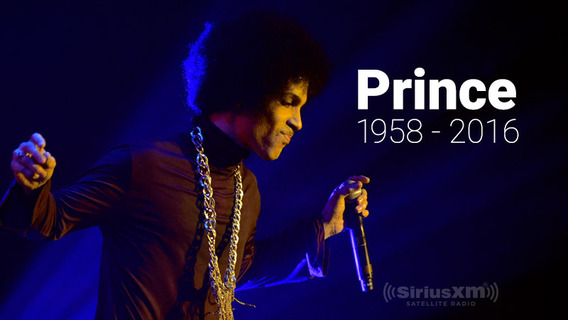
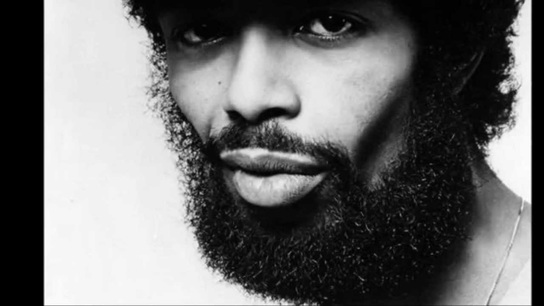
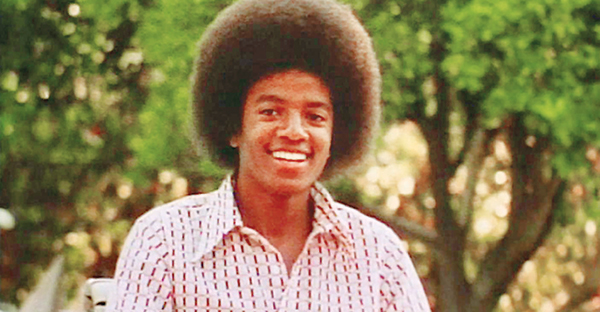
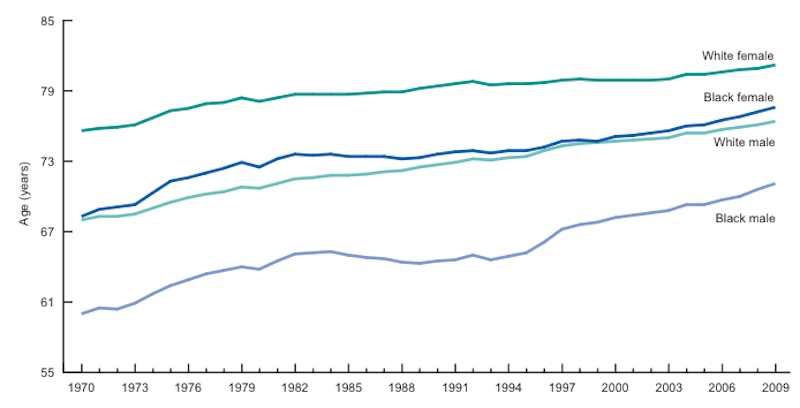
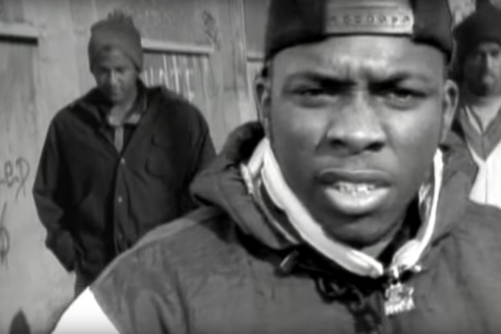


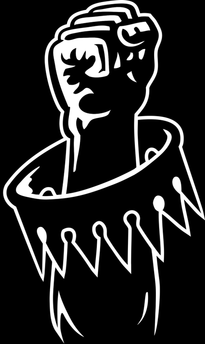
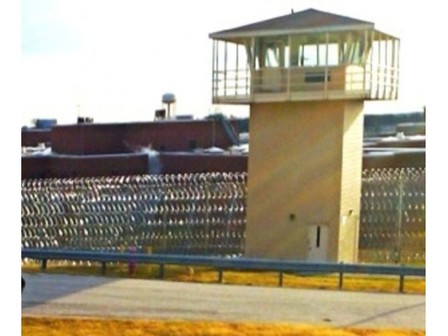
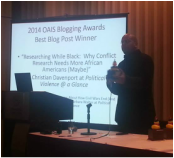
 RSS Feed
RSS Feed
